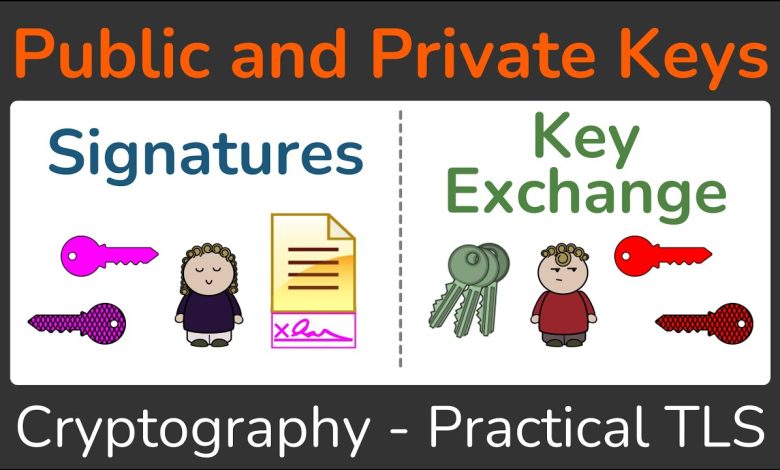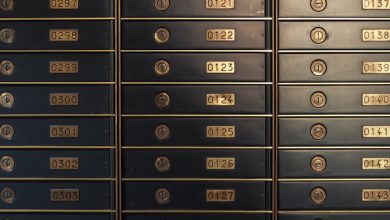The Importance of Private Keys and How to Secure Them

- Understanding the Role of Private Keys in Cryptocurrency Security
- Why Private Keys are Essential for Protecting Your Digital Assets
- Best Practices for Generating Strong and Secure Private Keys
- The Risks of Losing or Sharing Your Private Keys
- How to Safely Store and Backup Your Private Keys
- Protecting Your Private Keys from Hackers and Phishing Attacks
Understanding the Role of Private Keys in Cryptocurrency Security
Private keys play a crucial role in ensuring the security of cryptocurrency transactions. These keys are essentially a form of digital signature that allows users to access their funds and authorize transfers. Without a private key, it is impossible to prove ownership of a cryptocurrency wallet, making it essential to keep this key secure at all times.
When it comes to securing private keys, there are several best practices that users should follow. One of the most important things to remember is to never share your private key with anyone else. This key should be kept confidential and only known to the wallet owner. Additionally, it is recommended to store private keys offline, such as on a hardware wallet, to minimize the risk of theft or hacking.
In the event that a private key is lost or compromised, it can result in the loss of all funds stored in the associated wallet. Therefore, it is crucial to back up private keys regularly and store them in a safe and secure location. By taking these precautions, users can help protect their cryptocurrency investments and prevent unauthorized access to their funds.
Overall, understanding the role of private keys in cryptocurrency security is essential for anyone looking to participate in the digital asset space. By following best practices for securing private keys and being vigilant about their protection, users can minimize the risk of theft and ensure the safety of their funds. Remember, the security of your private key is paramount in safeguarding your cryptocurrency holdings.
Why Private Keys are Essential for Protecting Your Digital Assets
Private keys are crucial for safeguarding your digital assets from unauthorized access and theft. These keys act as a secure way to authenticate your ownership of cryptocurrencies and other digital assets. Without private keys, anyone could potentially gain access to your assets and transfer them without your consent.
It is essential to keep your private keys secure and confidential at all times. If someone gains access to your private keys, they can easily steal your digital assets, leading to irreversible financial losses. Therefore, it is vital to store your private keys in a safe place, such as a hardware wallet or a secure offline storage device.
By understanding the importance of private keys and taking the necessary steps to protect them, you can ensure the security of your digital assets and have peace of mind knowing that your investments are safe from cyber threats and malicious actors.
Best Practices for Generating Strong and Secure Private Keys
When it comes to generating strong and secure private keys, there are several best practices that should be followed to ensure the safety of your sensitive information. Here are some key guidelines to keep in mind:
- Use a reliable random number generator to create your private key. This will help prevent any patterns or predictability in the key, making it harder for hackers to guess.
- Make sure your private key is long enough to provide sufficient security. A key that is too short can be easily cracked, so aim for a length of at least 256 bits.
- Keep your private key confidential and never share it with anyone else. This is essential to maintain the integrity of your encrypted data.
- Regularly back up your private key in a secure location. This will ensure that you can still access your encrypted information even if your original key is lost or compromised.
- Consider using a hardware wallet or secure storage device to store your private key. This adds an extra layer of protection against online threats.
By following these best practices, you can generate a strong and secure private key that will help safeguard your sensitive data from unauthorized access. Remember, the security of your private key is crucial in maintaining the confidentiality and integrity of your encrypted information.
The Risks of Losing or Sharing Your Private Keys
When it comes to private keys, the risks of losing or sharing them can be significant. If you lose your private keys, you may permanently lose access to your digital assets, such as cryptocurrencies or sensitive information. This can result in financial loss and potential security breaches. On the other hand, sharing your private keys with others can also pose a threat to your security and privacy. Unauthorized access to your private keys can lead to unauthorized transactions and data breaches.
How to Safely Store and Backup Your Private Keys
To **safely store and backup** your private keys, it is crucial to follow best practices to ensure the security of your digital assets. One of the most effective ways to protect your private keys is by using a **hardware wallet**. These devices store your keys offline, making them less vulnerable to hacking attempts. Additionally, consider **encrypting** your private keys before storing them on any device. This adds an extra layer of security in case your device is compromised.
Another important aspect of securing your private keys is to **backup** them regularly. This ensures that you can still access your assets even if you lose your primary device. When creating backups, consider using **multiple** storage locations such as **USB drives**, **paper wallets**, or **cloud storage**. Be sure to keep these backups in **secure** locations and avoid sharing them with anyone.
It is also essential to **keep** your private keys **confidential**. Avoid sharing them with anyone, including friends and family. Be cautious of **phishing** attempts and only enter your private keys on **trusted** websites. Remember that once your private keys are compromised, you may lose access to your digital assets permanently.
By following these **security** measures, you can protect your private keys and safeguard your digital assets from unauthorized access. Remember that the **safety** of your private keys is crucial in the world of **cryptocurrency**, where **hackers** are constantly looking for ways to exploit vulnerabilities. Take the necessary steps to secure your private keys and enjoy **peace** of mind knowing that your digital assets are safe and **protected**.
Protecting Your Private Keys from Hackers and Phishing Attacks
Protecting your private keys is crucial in safeguarding your digital assets from hackers and phishing attacks. Private keys are essentially the keys to your digital kingdom, allowing you to access and manage your cryptocurrencies securely. Here are some essential tips to help you keep your private keys safe:
- Never share your private keys with anyone, no matter how trustworthy they may seem. Your private keys should be kept confidential at all times.
- Use hardware wallets to store your private keys offline. Hardware wallets are considered one of the most secure ways to protect your private keys from online threats.
- Enable two-factor authentication (2FA) on all your accounts that use private keys. This adds an extra layer of security to prevent unauthorized access.
- Be cautious of phishing attempts, where hackers try to trick you into revealing your private keys through fake websites or emails. Always double-check the authenticity of websites before entering your private keys.
- Regularly back up your private keys in multiple secure locations. This ensures that you can still access your digital assets even if you lose access to one of your backups.
By following these best practices, you can significantly reduce the risk of your private keys falling into the wrong hands. Remember, protecting your private keys is essential for maintaining the security of your digital assets in the ever-evolving landscape of cybersecurity threats.



